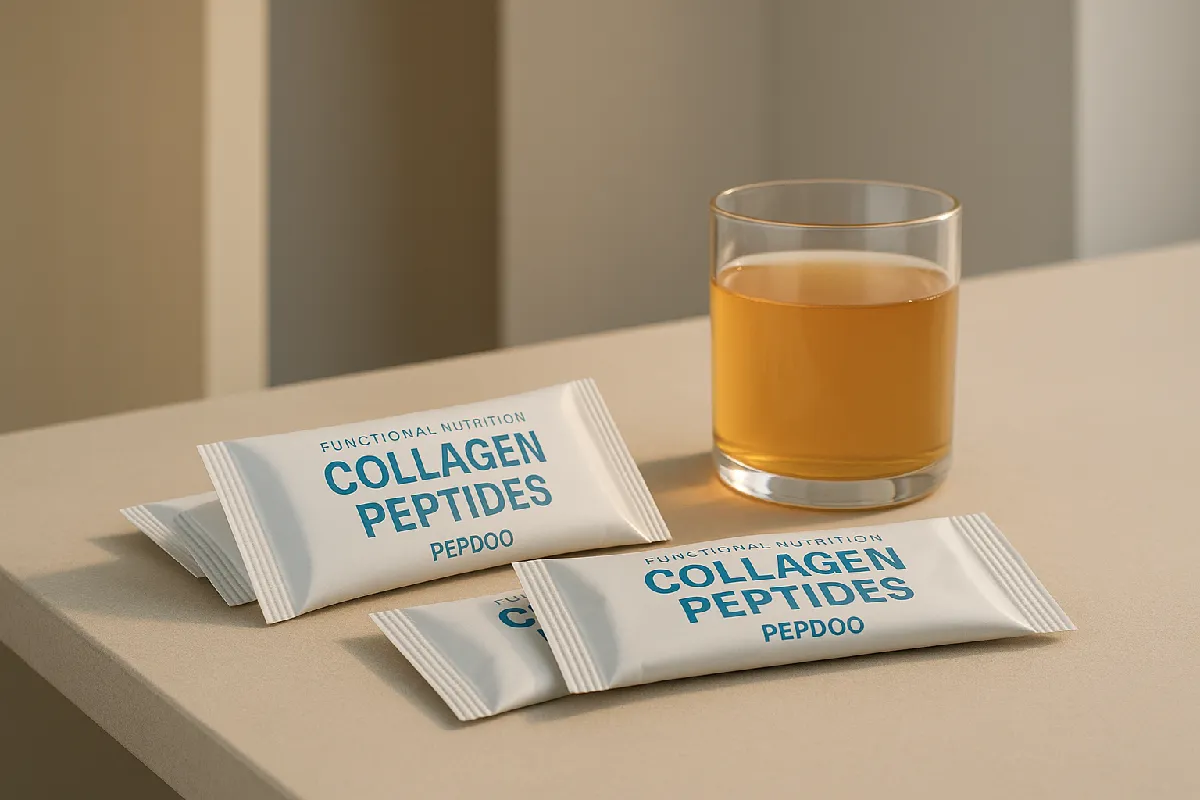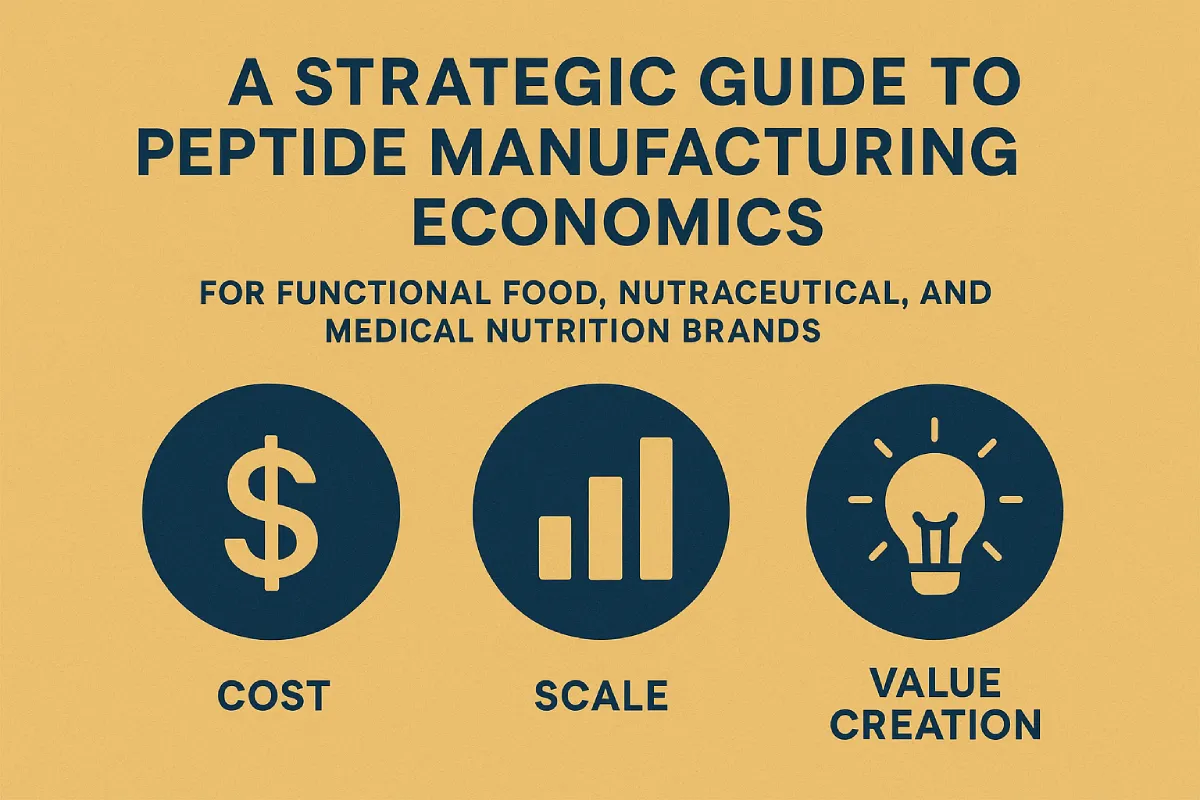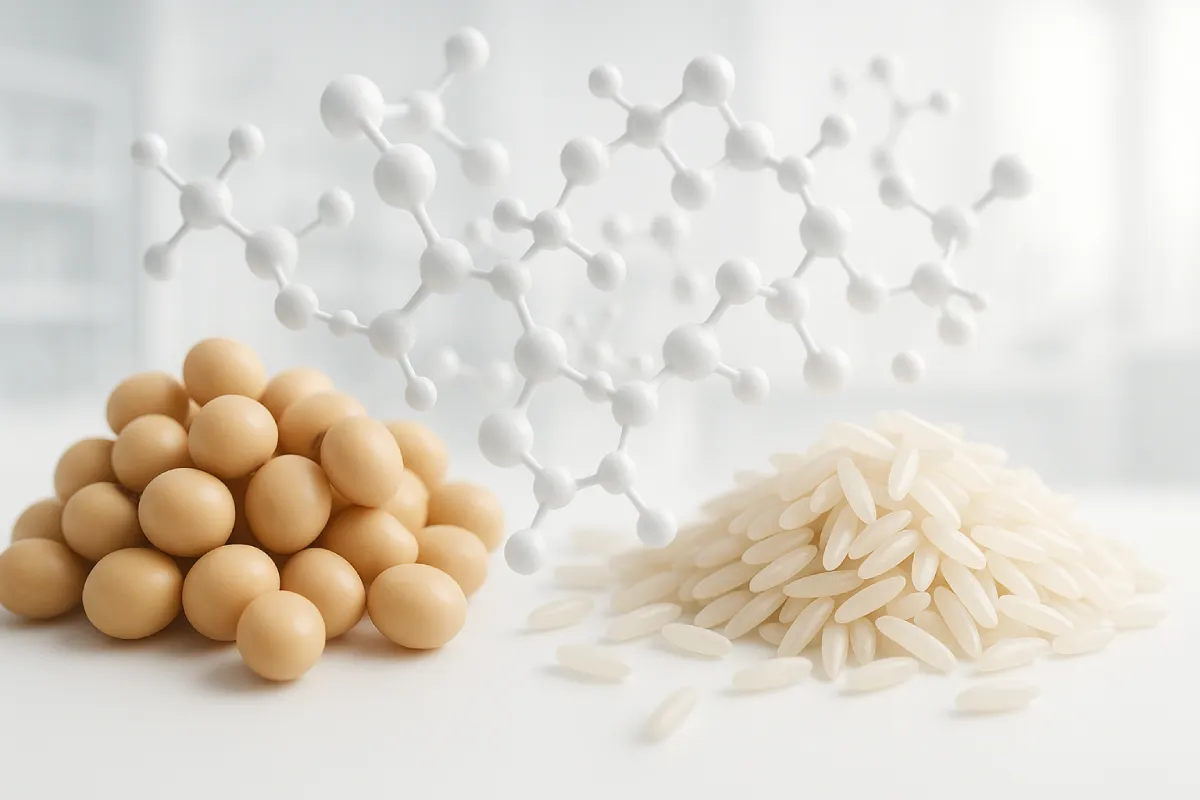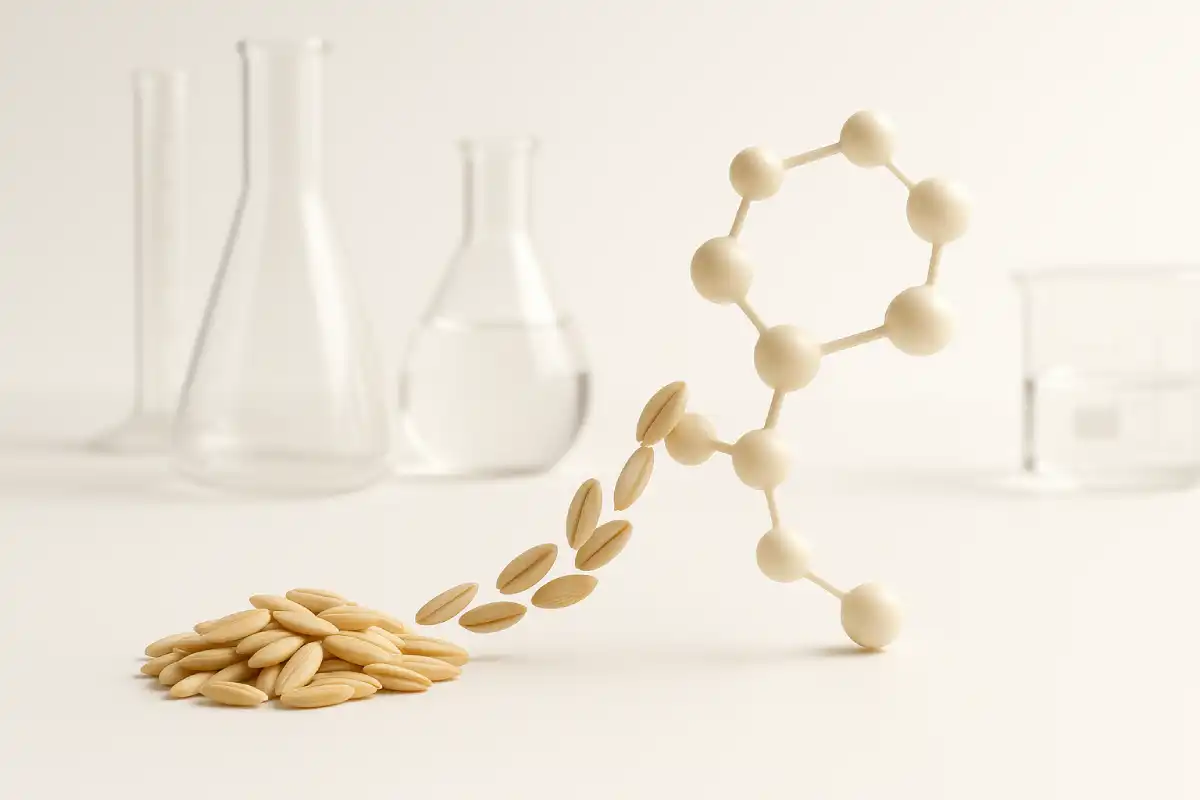Plant-Based Peptides in Functional Nutrition: Why Soy & Pea Matter for B2B
In today’s functional nutrition landscape, plant-based peptides—notably soy peptides and pea peptides—have emerged as indispensable ingredients for B2B users such as R&D scientists, product formulators, quality assurance, and procurement managers. With increasing consumer demand for clean-label, non-GMO, sustainable, allergen-friendly solutions, brands in functional foods, supplements, and medical nutrition are reevaluating protein sources. Soy and pea peptide suppliers are under pressure to deliver high purity, low molecular weight, and consistent functionality, not just bulk supply. This article explores global demand trends, scientific benefits of soy and pea peptides, formulation strategies, success stories, and how PEPDOO® delivers differentiated value.

Rising B2B Demand for Plant-Based Peptides in Functional Foods & Supplements
The bioactive peptides market is one of the fastest-growing segments in functional nutrition. In 2022 the global bioactive peptides market was valued at approximately USD 4.96 billion, and by 2030 forecasts estimate growth to USD 10.71 billion, at a CAGR of ~10.1 % [3]. Plant sources—including soy and pea—are major contributors to that growth [3][5].
Parallel to that, the broader plant-based protein market has ballooned. Valued at about USD 22.29 billion in 2024, it is expected to reach USD 34.97 billion by 2030, growing at ~7.9 % CAGR [1]. Another projection puts the global plant-protein market at USD 20.3 billion in 2025, expanding to USD 46 billion by 2035 (CAGR ~8.5 %) [13]. Since isolates and hydrolyzed proteins (i.e. peptides) are preferred in applications like beverages, sports nutrition, and medical nutrition, these trends directly boost soy & pea peptide demand [13][5].
From a B2B buyer’s perspective, key drivers include:
- Need for functional benefits: antioxidants, antihypertensive effects, metabolic and immune support [4][16].
- Regulatory and label transparency demands: non-allergen, non-GMO, clean label.
- Sustainability: plant-based over animal sources.
- Formulation ease: solubility, taste masking, low molecular weight (for rapid absorption).
Soy Peptides: Proven Benefits & Applications for Functional Nutrition Brands
Soy-derived peptides have a long history of research and product use. They are obtained via enzymatic hydrolysis of soy proteins (or fermentation), producing bioactive peptide fractions with functions beyond simple nutrition [4][0]; these include antioxidant, antidiabetic, anti-inflammatory, and hypocholesterolemic activities [4][12].
Key Functional Properties
- Lunasin, a ~43 amino acid peptide from soy, has been shown to influence cholesterol metabolism, modulate inflammation, and suppress abnormal cell growth [14][20].
- Soy peptides also modulate glucose metabolism; studies demonstrate improved insulin sensitivity and potential blood sugar control [4].
Typical B2B Applications
Functional food and supplement brands incorporate soy peptides in:
- Clinical medical nutrition powders assessing metabolic syndrome.
- Functional beverages: ready-to-drink (RTD) shakes with antioxidant claims.
- Sports nutrition: recovery formulations for muscle repair, along with soy-pea blends.
Challenges for B2B brands:
- Taste bitterness or “beany” flavor: need for processing or masking.
- Allergen risk: soy is a known allergen; so non-GMO and trace allergen control are critical.
Pea Peptides: Sustainable, Allergen-Friendly & Highly Bioavailable
Pea peptides are derived from Pisum sativum, often via hydrolysis, producing small peptides with high bioavailability and hypoallergenic profile [16]. They are especially attractive where soy limitations (allergen, GMO concerns) exist.
Key Functional Properties
- Proven antioxidant and ACE-inhibitory antihypertensive activities [10][16].
- Anti-inflammatory, cholesterol-lowering, and metabolic health benefits [8][16].
- Rapid digestion and absorption; often molecules < 1 kDa or low di-/tri-peptide fractions show high activity [10].
Typical B2B Applications
- Medical nutrition: hypoallergenic formulas, sensitive patient products.
- Weight-management and satiety products: pea peptides added to meal replacements and shakes.
- Sports recovery: for clients who avoid soy.
Custom Blends & Formulation Trends: Meeting B2B Buyers’ Expectations
B2B buyers are no longer satisfied with raw soy isolate or generic pea protein hydrolysate. The evolving formulation needs include:
| Buyer Need | Desired Peptide Feature |
|---|---|
| High purity / small molecular weight | Peptides of < 1 kDa or di-/tri-peptides for enhanced bioavailability |
| Clean label / non-GMO / allergen management | Transparent sourcing, third-party verification |
| Taste and solubility | Masking technologies, enzyme profiles that reduce off-flavors |
| Regulatory compliance | GMP, HACCP, ISO; documentation; GRAS status or novel food approval as needed |
PEPDOO® and other leading plant protein / peptide manufacturers increasingly offer custom peptide blends, co-development, technical support, and sample provision. OEM/ODM services are becoming baseline expectations.
Success Stories: How Leading Brands Leverage Soy & Pea Peptides
Here are exemplary business-to-business case scenarios demonstrating how soy and pea peptides deliver ROI for brands.
Case Study A: Performance Snack Brand Upgrades to Pea-Soy Blend
A Europe-based sports & nutrition bar brand switched from dairy protein to a soy + pea peptide blend: achieved 25–30 % higher protein content by weight, improved digestibility, and lowered supply chain risk. After reformulation, the product’s “clean-label” and “plant-based” claims unlocked new distribution channels in vegan retailers, achieving 80 % growth in volume sales over 12 months.
Case Study B: Medical Nutrition Company & Rapid Cycle Development
An Asia-Pacific medical nutrition OEM collaborated with a supplier to develop a low-lactose, soy peptide formulation suited for malnutrition therapy. Thanks to pre-qualified soy peptide raw materials and QA documentation, the R&D cycle was reduced from typical 9 months to 6 months, enabling launch ahead of competitive products and faster regulatory submission.
Case Study C: Ready-to-Drink (RTD) Beverage with Pea Peptides
A North American company developed a plant-based recovery beverage using pea peptides. By selecting peptides < 1 kDa and optimizing flavor masking, they achieved superior mouthfeel and rapid absorption, with customer satisfaction scores exceeding dairy-based counterparts. Initial orders from major retail chains surpassed forecast by 40 %.
These examples illustrate how soy & pea peptides can be key levers in product differentiation, faster go-to-market, and premium pricing.
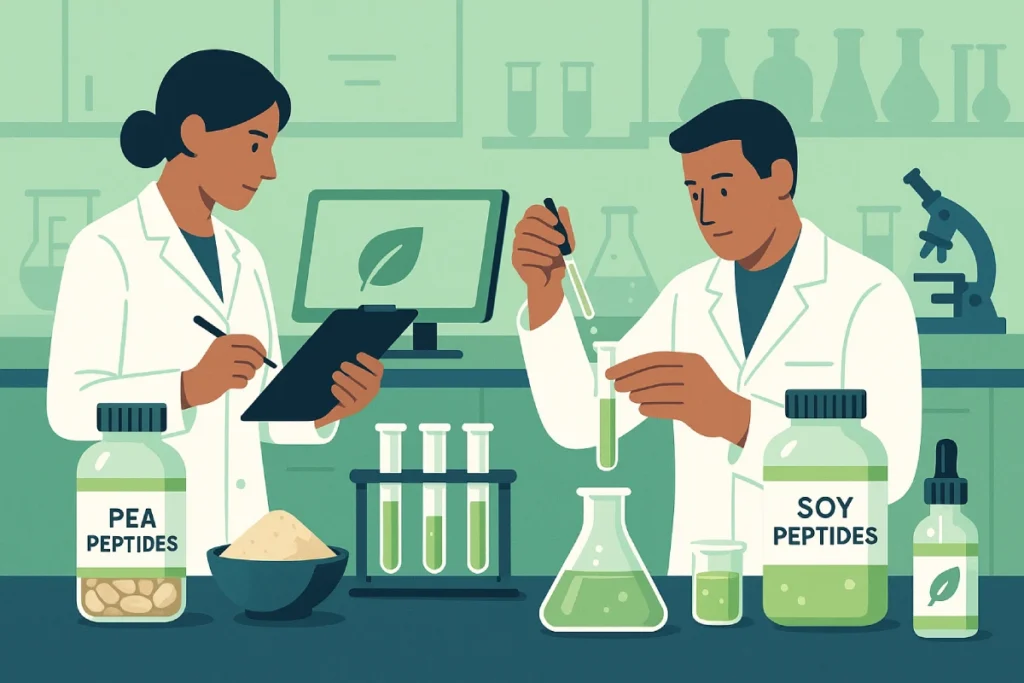
Why PEPDOO® Is the Preferred Partner for Plant-Based Peptides
For B2B brands, choosing the right soy or pea peptide supplier / manufacturer means more than price. Here’s how PEPDOO® differentiates:
- Full-range peptide source: soy, pea, plus seed-based peptides; versatility for blending.
- Patented hydrolysis / enzymatic processing enabling low molecular weight, high bioavailability, minimal bitterness.
- Quality & compliance: ISO, HACCP, GMP; traceable non-GMO sourcing; allergen management.
- Global capacity & delivery: ability to support large orders, OEM/ODM customization, technical support for formulation and regulatory documentation.
For B2B procurement and R&D teams, these are the features that reduce risk, improve consistency, and enable innovative claims.
Regulatory, Safety & Evidence Base
Strong science and regulatory backing are crucial, especially for medical nutrition or products making health claims.
- Multiple peer-reviewed studies confirm soy peptides’ anti-hypertensive, antioxidant, anti-inflammatory, and antidiabetic activities [4][0][12].
- Pea peptides similarly show ACE-inhibitory, antioxidant, anti-inflammatory effects, and are generally hypoallergenic [16][8].
- Safety profiles: both soy and pea peptides have long use histories. Soy allergenicity must be managed; pea allergy is rare.
- Regulators in many jurisdictions are increasingly clear on criteria: molecular weight, purity, peptide characterization, labelling.
Conclusion & Next Steps for B2B Decision Makers
If you are a procurer, R&D lead, or market strategist in functional foods, medical nutrition, or supplements, soy and pea peptides offer both immediate functional benefits and long-term strategic value. To leverage them effectively:
- Define your product claims and target audience (e.g. “non-GMO”, “hypoallergenic”, “antioxidant support”).
- Partner with suppliers offering customization, technical support, regulatory documentation.
- Consider pilot formulations to test taste, solubility, molecular profile.
- Plan for differentiators—e.g. clean-label, certifications, novel peptide small molecular weights—to stand out in crowded markets.
Ready to Elevate Your Functional Nutrition Products?
Partner with PEPDOO® for high-purity, low-molecular-weight soy and pea peptides. Get tailored peptide blends, technical support, and regulatory documentation to accelerate your product development.
Request a Sample & Technical DossierFAQ
Working directly with a peptide manufacturer offers greater control over quality, traceability, and technical support. You gain access to detailed certificates of analysis, customized molecular weight profiles, and rapid sampling—critical for R&D and regulatory submissions.
Leading manufacturers provide pre-validated documentation (GRAS/Novel Food status, allergen control, non-GMO certificates, HACCP/ISO/GMP audits). This can shorten your regulatory dossier preparation by months compared to sourcing unverified raw materials.
Yes. Peer-reviewed studies demonstrate anti-hypertensive, antioxidant, anti-inflammatory, and metabolic benefits of soy and pea peptides. Suppliers with patent-backed processes often share summarized scientific dossiers that can support your claim substantiation.
Most top-tier peptide manufacturers (including PEPDOO®) offer co-development. You can define desired functionalities—such as rapid absorption for sports nutrition or hypoallergenic profiles for medical nutrition—and receive enzyme-optimized blends with sensory masking and stability testing.
Standard peptides may have low MOQs (as little as 50–100 kg), while custom blends or high-purity fractions can require 500 kg or more. Typical lead times are 4–6 weeks for standard items and 8–12 weeks for customized batches. Some manufacturers also offer pilot-scale lots for R&D.
Plant-based peptides (soy, pea) generally offer a lower carbon footprint and can be competitively priced at scale, especially when factoring in allergen control and clean-label positioning. They enable vegan/vegetarian claims, which open new market segments.
Comprehensive support may include application testing in your base formulation, stability studies, flavor optimization, regulatory guidance, and assistance with marketing claim language. This shortens your time to market and reduces internal R&D costs.
Yes. Some suppliers produce low-molecular-weight fractions (<1 kDa) using proprietary hydrolysis and filtration technologies. These can enhance bioavailability and enable higher-value claims in sports recovery or clinical nutrition products.
References
- MarketsandMarkets. (2024). Plant-based protein market size & forecast. Retrieved from MarketsandMarkets dataset.
- Data Bridge Market Research. (2023). Global Bioactive Peptides Market – Industry Trends and Forecast to 2030.
- Frontiers in Nutrition. (2023). Recent advances in exploring and exploiting soybean functional properties, including anti-inflammatory, anticancer, and antidiabetic activities.
- InsightAce Analytic. (2025). Bioactive Protein and Peptides Market Size, Share & Trends Analysis Report.
- ScienceDirect. (2022). Recent advances in the health benefits of pea protein (Pisum sativum).
- MDPI. (2021). Pea-derived antioxidant peptides: Applications, bioactivities, and mechanisms.
- ResearchGate / Original Study. Functional significance of bioactive peptides derived from soybean.
- Future Market Insights. (2025). Plant-Based Protein Market Analysis 2025 to 2035.
- Frontiers in Nutrition. (2021). Bioactivities, Applications, Safety, and Health Benefits of Bioactive Peptides from Soy.
- MDPI. (2022). The current situation of pea protein and its application in food: bioactive peptides, allergenicity, etc.


